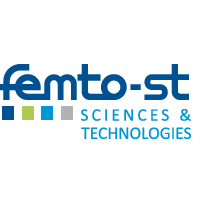Tampere University of Technology, Finland
Tentative title:
Microrobotics for High Throughput Characterization of Fibre Materials and their Interfaces
Abstract:
Microrobotics is today an established field of science with huge development in recent years in the maturity of sensors, vision systems and actuators as components of microrobotic systems. We have also seen increase in the level of automation - even though autonomous microrobotic systems still remain at low technology readiness levels – and a large number of microassembly and biomedical applications. This talk will, however, focus on material science applications and on actions to increase the throughput in micro-scale fibre characterization by increasing the level of automation of microrobotic systems.
Paper and board are examples of networks of randomly stacked fibres. Their strength properties are determined by the structure of the network and the properties of individual fibres and fibre-fibre bonds. There are numerical models which can predict the behavior of fibre networks, when the structure of the network and mechanical properties of fibres and fibre-bonds are known. However, methods to predict how mechanical or chemical modification affect mechanical properties of fibres and fibre-bonds are lacking. Furthermore, the current experimental fibre testing methods are extremely slow and do not produce the throughput needed.
In fibre reinforced materials, such as glass and carbon fibre composites, the properties of fibre-matrix interface have a significant impact on the mechanical properties of the final composite structure. Even though the role of the interfacial properties has been widely acknowledged, their characterization has proven to be challenging. The current methods for the direct characterization of fibre-matrix interface properties involve tedious manual work and typically possess a wide dispersion of the results. Furthermore, the throughput of the existing instruments is again rather low.
With the microrobotics research at Tampere University, we have tackled the challenge of characterizing the mechanical properties of fibres, fibre bonds and fibre-matrix interfaces at a high speed by developing automatic microrobotic technologies. This talk presents our recent results and development in hardware and algorithmic methods for measuring the tensile properties of individual natural fibres, the bonding capability of natural fibres and the shear strength of glass fibre – polymer matrix interfaces.
Biography:
Professor Pasi Kallio’s research interests include microrobotics, microfluidics, organ-on-chip technologies, and their use in micro-scale material testing and cell and tissue engineering. Currently, Prof. Kallio is the vice dean for research and the head of Micro- and Nanosystems Research Group in the Faculty of Medicine and Health Technology at Tampere University, Finland. Since 2008, he has hold a professorship of automation engineering in biomicrosystems. Prof. Kallio has authored more than 140 peer-reviewed journal and conference articles, given several invited and keynote talks in international conferences, has fifteen patent applications and has co-founded three spin-off companies. Currently, he is a principal investigator in five large research projects including a Body-on-Chip Centre of Excellence funded by the Academy of Finland in 2018-2025 and an Innovative Training Network FibreNet funded by MSCA of H2020 in 2017-2021.

